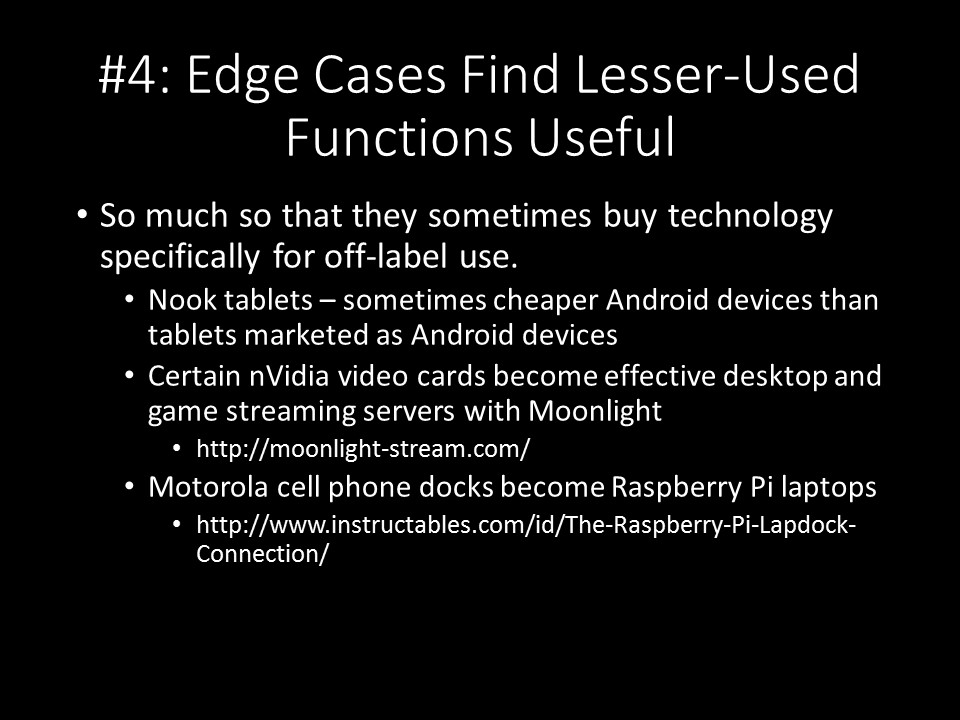
In fact, they might be looking at you specifically because you have a function that will work really well for them. Or that you have a program that's close to what they want and you have a really large suite of possible options for them to go tweaking around in to see if it's only the default configuration that's not quite right for them. The endless ability to tinker until things are just so is something useful for keeping your edge cases happy with you, because giving them the ability to do things the way they want to will please them, even as it potentially intimidates away regular users. So, y'know, moderation and all that, or a really good set of defaults and lots of signposts for those that want to go off into the wild on their own.
Positive examples are things like Barnes and Noble Nook tablets - they're cheap devices that can be tweaked or full-converted to Android devices for less cost than actual Android tablets. Or how Moonlight Game Streaming transforms certain nVidia video cards into streaming platforms for Android or iOS devices, including remote desktop streaming. And how certain cell phone docks made by Motorola can make a Raspberry Pi portable.